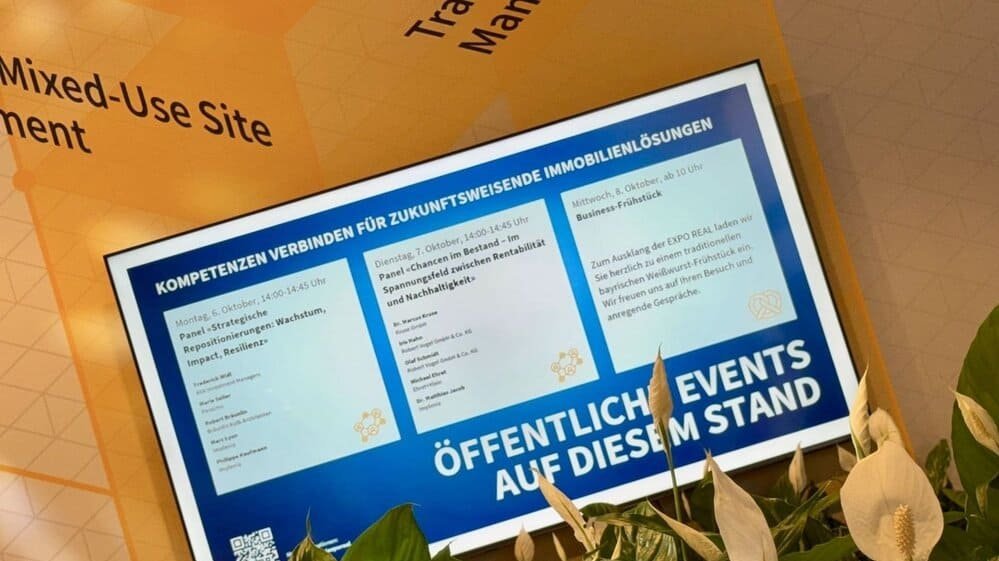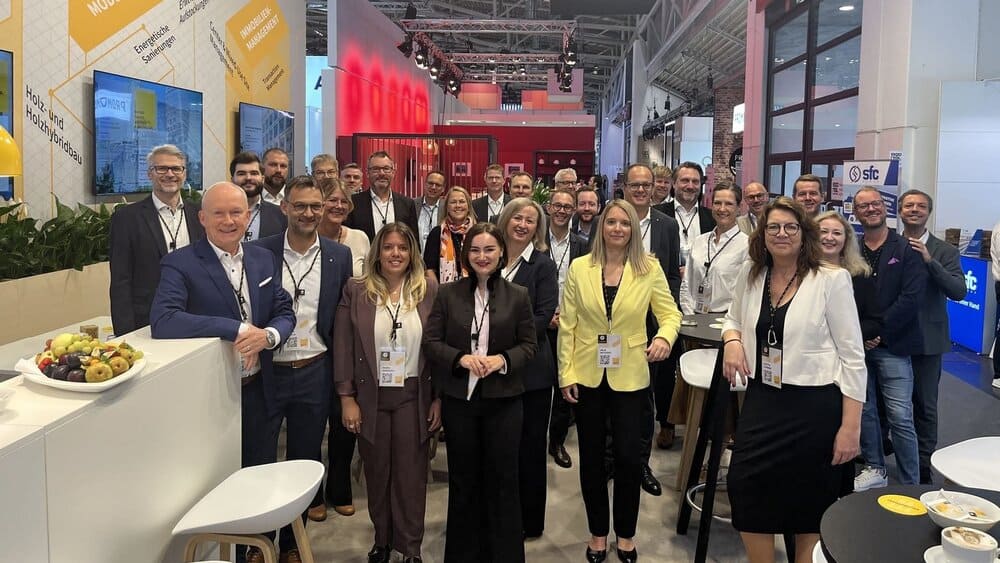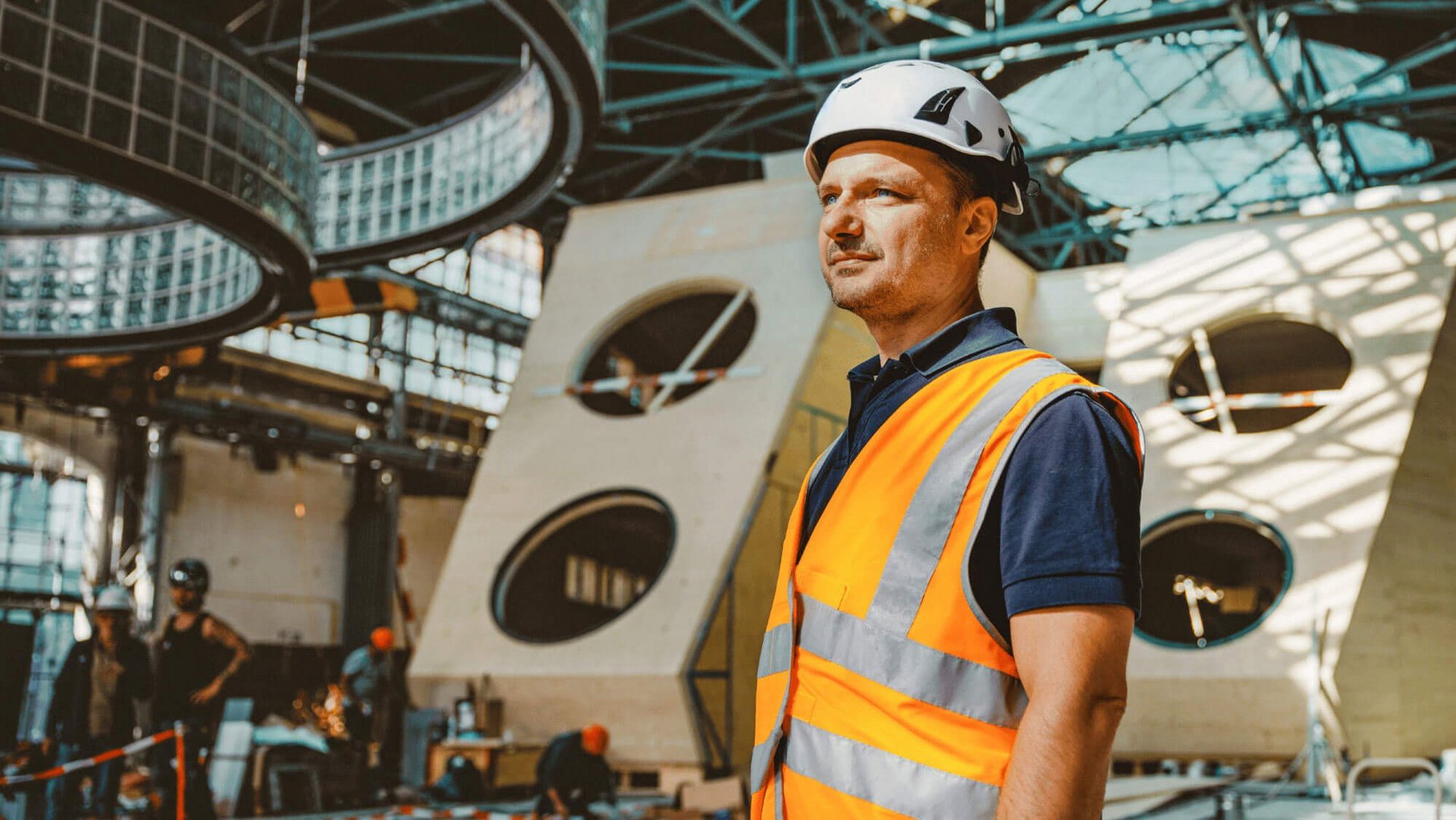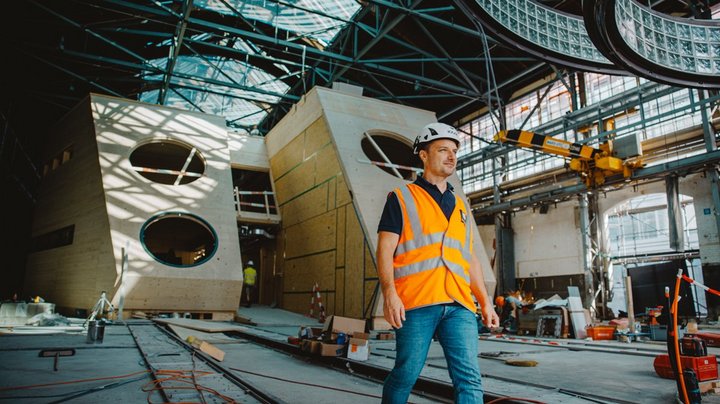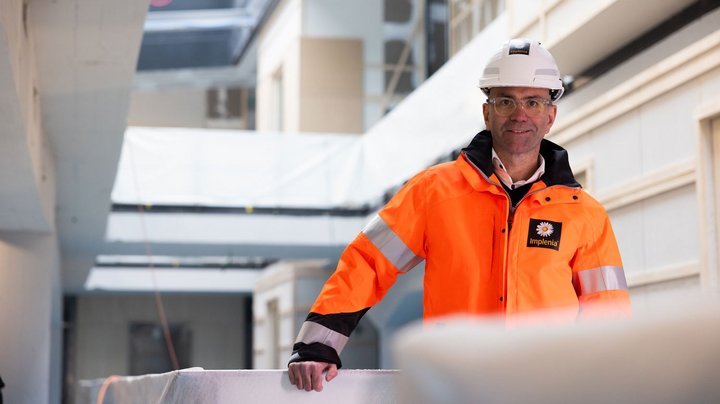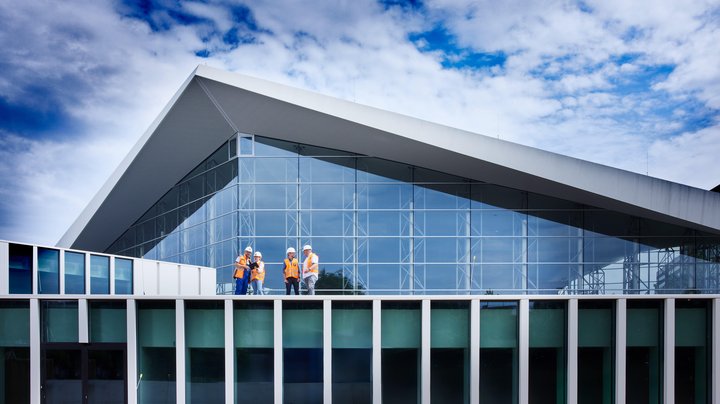Rethinking existing buildings - Implenia at EXPO REAL 2025
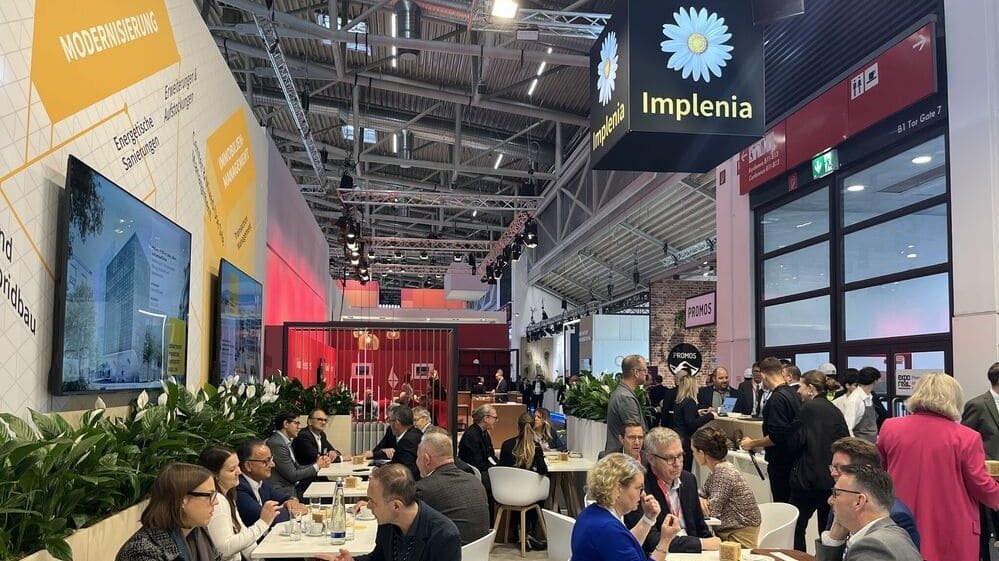
In the area of conflict between climate protection, housing shortage, scarcity of space and changing user needs, existing buildings offer enormous potential. Existing properties can be given new prospects through sustainable revitalization, demand-driven conversion and redensification by adding extra storeys. The Implenia team showed how this can be achieved at the beginning of October at the EXPO REAL real estate trade fair in Munich.
That was EXPO REAL 2025 with Implenia: Impressions and customer testimonials from one of Europe's largest real estate trade fairs
Expertise along the entire real estate value chain
Adrian Wyss, Head of the Buildings Division at Implenia, explains the recipe for successfully exploiting this potential: "With comprehensive expertise along the entire real estate value chain - from development and planning to implementation - as well as in-depth know-how in ESG, digitalization and serial construction, we create sustainable, flexible solutions. Our integrated services and holistic partnership approach help to conserve resources, preserve value and open up new opportunities for use."
Services in building construction: consulting, planning, construction, services and system solutions
EXPO REAL 2025 was all about open exchange on the future of the real estate industry and the establishment and expansion of long-term partnerships. These create the basis for transforming tomorrow's solutions from idea to reality. Two expert panels organized by Implenia contributed to this.
Panel "Strategic repositioning: Growth, Impact, Resilience"
The strategic repositioning of real estate portfolios is increasingly becoming a key driver of growth, sustainable impact and long-term resilience. The aim is to create future-proof, high-quality assets that generate a stable cash flow over a longer period of time while responding to structural changes in demand and the regulatory framework.
One relevant example is the conversion of commercial properties into residential properties as part of urban densification. However, such conversions are complex and require the integration of expertise from various disciplines: Real estate markets, development, planning and architecture, construction and modernization, repositioning strategies and regulatory frameworks.
As part of the panel, experts shed light on which repositioning strategies are most effective, where the most promising opportunities lie and which projects can be considered best practice. Also present:
- Frederick Widl, Head Real Assets Switzerland, AXA Investment Managers
- Marie Seiler, CEO, Pensimo Management AG
- Robert Bräunlin, Managing Director, Bräunlin Kolb Architekten GmbH
- Marc Lyon, Head Real Estate Development, Implenia
- Philippe Kaufmann, Head Modernization, Implenia
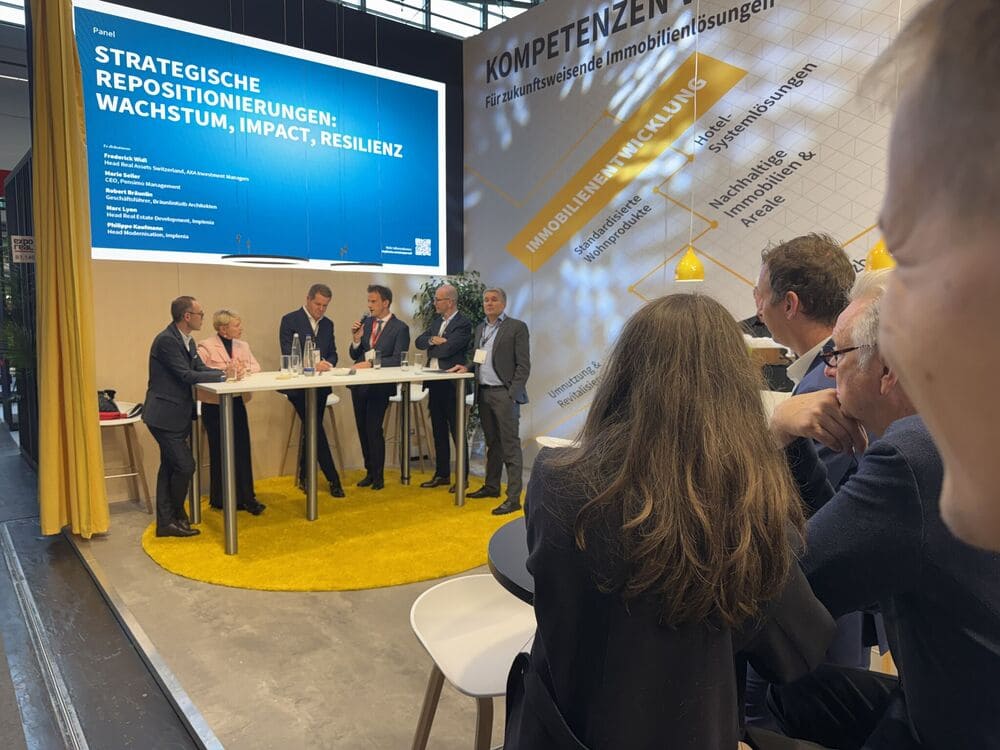
Panel "Strategic repositioning: Growth, Impact, Resilience": experts use specific projects to discuss why the strategic repositioning of real estate portfolios is increasingly becoming a key driver of growth, sustainable impact and long-term resilience
Panel "Opportunities in existing buildings - the tension between profitability and sustainability"
The building stock is one of the biggest levers and at the same time one of the biggest challenges on the road to greater sustainability. The real estate industry faces the challenge of combining profitability and sustainability. Increasing regulatory requirements, rising energy prices and the growing demand for climate-friendly buildings are making change necessary. Investments in energy-efficient, environmentally friendly (existing) properties with lower operating costs and flexible usage concepts ensure the future viability of the portfolio and are supported by government subsidies, among other things.
How do large portfolio holders and long-term project developers and investors navigate the tension between profitability and sustainability? Where are the greatest levers for optimizing the carbon footprint and creating future-proof, high-quality assets while at the same time not letting costs get out of hand? These and other questions were discussed:
- Dr. Marcus Kruse, Investor & Managing Partner, Kruse GmbH
- Olaf Schmidt, Head of Construction and Maintenance, Robert Vogel GmbH & Co.
- Michael Ehret, Founder, Ehret+Klein AG
- Matthias Jacob, Head Buildings Germany, Implenia
- Andreas Winde, Head Sustainability Buildings Germany, Implenia
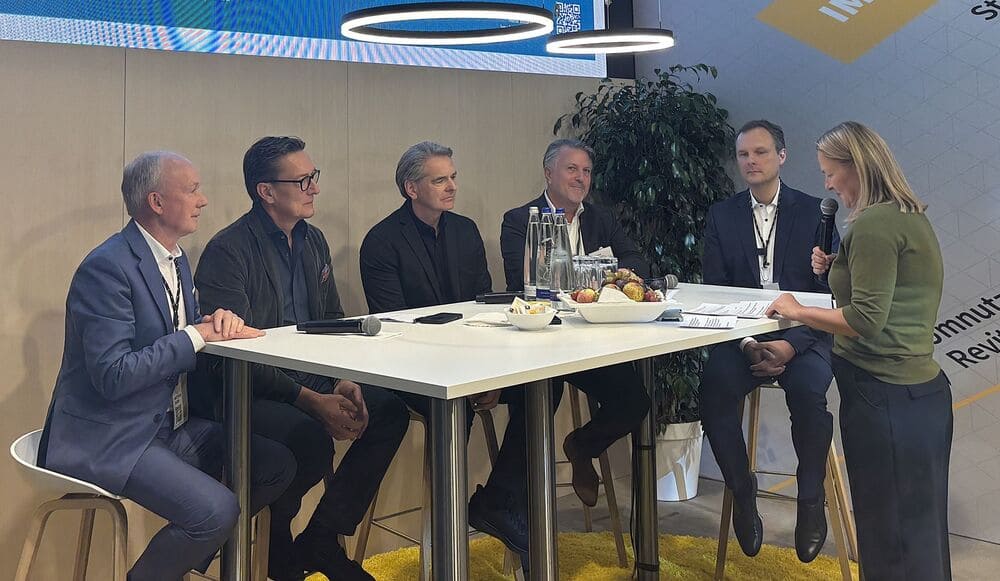
Panel " Opportunities in existing buildings - between profitability and sustainability": Conclusion of the discussion? Change will only succeed if we break new ground, in partnership, with courage and a changed mindset. It is not price competition, but quality, simplicity and responsibility that must set the pace
Andreas Winde, sustainability expert at Implenia, opened the panel with a brief introduction and made it clear thatCO2 pricing will cause major upheavals in the market in the coming years, as conventional, non-sustainable construction methods will become significantly more expensive. During the discussion, it became clear that change can only succeed if everyone involved breaks new ground, in partnership, with courage and a changed mindset. Michael Ehret, founder of Ehret+Klein"We have to dare to leave things out. Instead of talking about costs, we should talk about quality and optimization. We also need to learn to plan and build in a circular economy. To do this, we finally need conversion regulations and not new construction regulations that are also imposed on existing buildings."
For Dr. Marcus Kruse, Managing Partner of Kruse GmbHthe key lies in the fundamental attitude with which he approaches projects as an investor: "First and foremost, we have to build for the users. And a property must be so good that we want to keep it in our portfolio for the long term." And Olaf Schmidt, Head of Construction and Maintenance at Robert Vogel GmbH & Co.adds from the perspective of a large portfolio holder: "It is important to us to create additional living space for Hamburg - and to handle our portfolio responsibly in the process. Simply passing on the costs to the tenants is not an option. We want to renovate in a socially responsible way and make our portfolio fit for the coming decades."
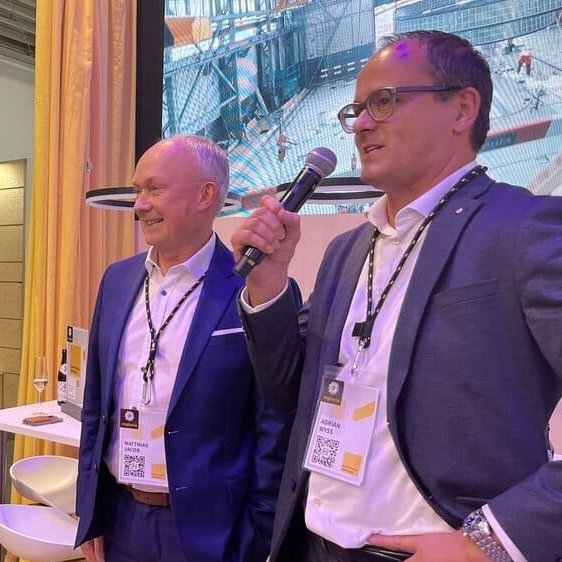
General contractor as bridge builder
Matthias Jacob, Head of Building Construction at Implenia Germany, is aware of his own key role: "As a general contractor, we are bridge builders: real productivity comes about when everyone involved sits around the table at an early stage - planners, clients and experts. If we plan and build serially, digitally and in partnership, we can transform existing buildings more quickly and fulfill our responsibility to society as a whole."
As a general contractor, we are bridge builders: Matthias Jacob and Adrian Wyss (from left) on Implenia's central role
